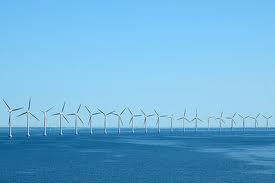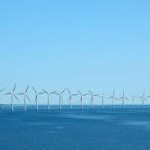
 Researchers in Denmark discovered a new way to store wind energy in giant synthetic air bags buried under sand dunes has proved to be a success, according to trade journal Ingeniøren .
Researchers in Denmark discovered a new way to store wind energy in giant synthetic air bags buried under sand dunes has proved to be a success, according to trade journal Ingeniøren .
An initial test, carried out in a 5×5-meters engine room in Southern Jutland, measured the efficiency of the storage at 97 percent. A second test conducted in a larger facility measured the efficiency at 99.5 percent.
The project is in its final stages and uses the same kind of pump and turbine system used for energy storage in lakes. Wind powered compressors inflate the bags, and the compressed air is later released to generate power.
According to the researchers involved in the project, the most difficult aspect of the storage is making certain that the massive air bags can handle repeated inflation and deflation. Also, the sand layers over the bags must remain stable and level over long periods of time.
‘But the synthetic membrane has proved to be unproblematic,’ said Ole Hededal, a lecturer at the Technical University of Denmark. ‘In our tests the bags only stretched 0.5 percent, and they’re made to tolerate tension of up to 14 percent.’
For the final phase of testing, a 150 foot by 150 foot air bag will be used – a storage unit that can hold up to 34 kilowatts of wind energy.




Enjoyed every bit of your blog post. Really Cool.
“a storage unit that can hold up to 34 kilowatts of wind energy.”
kW is a unit of power, not a unit of energy.
So either the storage unit can hold up to 34 kiloWatthours of energy (which is not very much, since a modern windturbine working at full capacity delivers 3500 kiloWatthours in a single hour), or the storage unit can deliver a power of maximal 34 kiloWatts. In the latter case the question is for how long it can deliver this power.